If the thought of constantly vacuuming up dog hair fills you with dread, you’re not alone. Many dog lovers dream of a canine companion without the shedding aftermath. The good news is that the world of small dog breeds offers a fantastic array of options for those seeking a clean and tidy home. From breeds that boast truly minimal shedding to those that are practically hairless, this guide will help you discover the best behaved small dogs that don’t shed, ensuring you find the perfect furry friend that complements your lifestyle. We’ll explore the unique characteristics of these low-shedding breeds, focusing on their temperament, grooming needs, and overall suitability as companions.
Top Small Breeds with Minimal to No Shedding
Finding a dog that fits both your personality and your desire for a hair-free environment is achievable. Many small breeds are renowned for their low-shedding coats, making them ideal for allergy sufferers and meticulous homeowners alike. Let’s delve into some of the most popular and well-behaved small dogs that don’t shed:
Affenpinscher: The “Monkey-Like Terrier”
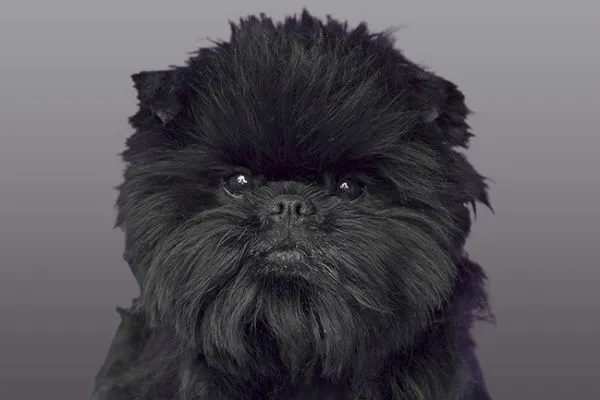 affenpinscherThe Affenpinscher, whose name translates to “monkey-like terrier,” lives up to its moniker with its intelligent and distinctive appearance. These small but fearless dogs are alert and protective, ensuring no unannounced guests will sneak past them. Their wiry coat sheds very little and is also notable for its minimal doggy odor. Maintaining their scruffy yet neat look is simple, requiring only twice-weekly brushing with a slicker brush and comb. This low-maintenance canine is celebrated for its delightful sense of humor. For those considering an Affenpinscher, exploring options for Affenpinscher puppies can be a great starting point.
affenpinscherThe Affenpinscher, whose name translates to “monkey-like terrier,” lives up to its moniker with its intelligent and distinctive appearance. These small but fearless dogs are alert and protective, ensuring no unannounced guests will sneak past them. Their wiry coat sheds very little and is also notable for its minimal doggy odor. Maintaining their scruffy yet neat look is simple, requiring only twice-weekly brushing with a slicker brush and comb. This low-maintenance canine is celebrated for its delightful sense of humor. For those considering an Affenpinscher, exploring options for Affenpinscher puppies can be a great starting point.
Basenji: The “Barkless” Hound
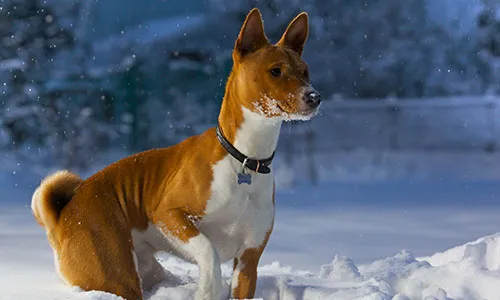 basenjiFor those who admire hound dogs but dislike their characteristic shedding and odors, the Basenji presents an excellent alternative. These dogs shed very minimally, and their short, fine coat requires little grooming beyond an occasional brushing. Basenjis are famously quiet, making them well-suited for apartment living, provided they receive adequate daily exercise and playtime. Discovering Basenji puppies might lead you to your ideal companion.
basenjiFor those who admire hound dogs but dislike their characteristic shedding and odors, the Basenji presents an excellent alternative. These dogs shed very minimally, and their short, fine coat requires little grooming beyond an occasional brushing. Basenjis are famously quiet, making them well-suited for apartment living, provided they receive adequate daily exercise and playtime. Discovering Basenji puppies might lead you to your ideal companion.
Bichon Frise: The Fluffy Companion
 bichon friseThe Bichon Frise is a quintessential non-shedding small dog breed, celebrated for its playful and affectionate nature. These dogs are often considered an ideal dog breed for people with allergies due to their minimal shedding. However, they are not entirely maintenance-free. The Bichon Frise’s hair grows continuously, necessitating frequent grooming, regular brushing, and occasional baths to maintain their signature “powder-puff” appearance. If you’re drawn to their charm, consider looking for Bichon Frise puppies.
bichon friseThe Bichon Frise is a quintessential non-shedding small dog breed, celebrated for its playful and affectionate nature. These dogs are often considered an ideal dog breed for people with allergies due to their minimal shedding. However, they are not entirely maintenance-free. The Bichon Frise’s hair grows continuously, necessitating frequent grooming, regular brushing, and occasional baths to maintain their signature “powder-puff” appearance. If you’re drawn to their charm, consider looking for Bichon Frise puppies.
Bolognese: The “Little Woolly Dog”
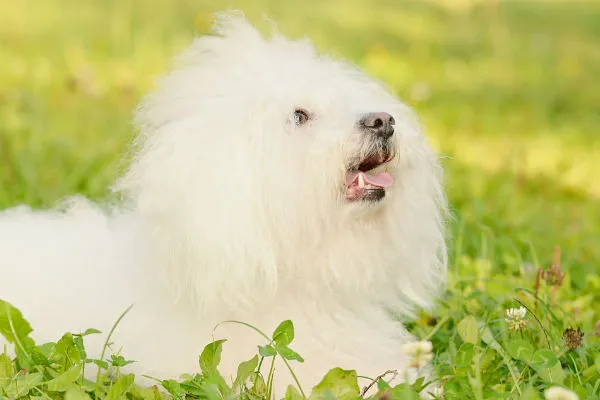 bologneseSimilar to the Bichon Frise, the Bolognese boasts a distinctive fluffy coat that consists of hair rather than fur. This breed does not shed, though dead hairs need to be brushed out regularly. Daily grooming is essential to keep these lovable lap dogs looking their best. Prospective owners can explore Bolognese puppies to bring this delightful breed into their homes.
bologneseSimilar to the Bichon Frise, the Bolognese boasts a distinctive fluffy coat that consists of hair rather than fur. This breed does not shed, though dead hairs need to be brushed out regularly. Daily grooming is essential to keep these lovable lap dogs looking their best. Prospective owners can explore Bolognese puppies to bring this delightful breed into their homes.
Brussels Griffon: The Eager Companion
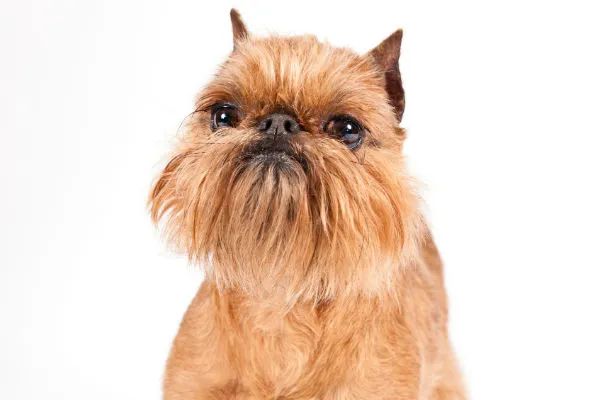 brussells griffonDespite their small stature, Brussels Griffons are robust dogs that do not require excessive pampering. Both the smooth-coated and rough-coated varieties are minimal shedders and thrive with regular grooming. Their exercise needs are generally met with a daily walk and indoor play. These loyal little dogs bond closely with their families and do best when their humans are home frequently. If this breed appeals to you, search for Brussels Griffon puppies.
brussells griffonDespite their small stature, Brussels Griffons are robust dogs that do not require excessive pampering. Both the smooth-coated and rough-coated varieties are minimal shedders and thrive with regular grooming. Their exercise needs are generally met with a daily walk and indoor play. These loyal little dogs bond closely with their families and do best when their humans are home frequently. If this breed appeals to you, search for Brussels Griffon puppies.
Chinese Crested: The Unique Hairless Wonder
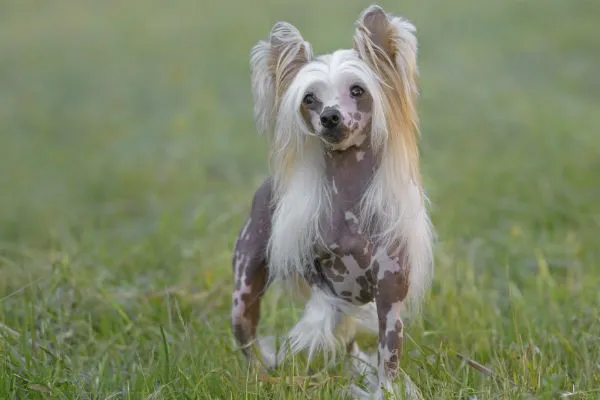 chinese crestedOne of the most effective ways to avoid shedding is to opt for a small hairless dog breed. The Chinese Crested comes in two coat types: hairless and powderpuff. The hairless variety has hair only on its head, tail, and feet, while the powderpuff has a fine coat that sheds very minimally. Hairless breeds require special attention to their skin, needing protection from the sun and cold, and are more susceptible to skin irritations. Those interested can find Chinese Crested puppies.
chinese crestedOne of the most effective ways to avoid shedding is to opt for a small hairless dog breed. The Chinese Crested comes in two coat types: hairless and powderpuff. The hairless variety has hair only on its head, tail, and feet, while the powderpuff has a fine coat that sheds very minimally. Hairless breeds require special attention to their skin, needing protection from the sun and cold, and are more susceptible to skin irritations. Those interested can find Chinese Crested puppies.
Coton de Tulear: The “Cotton Dog”
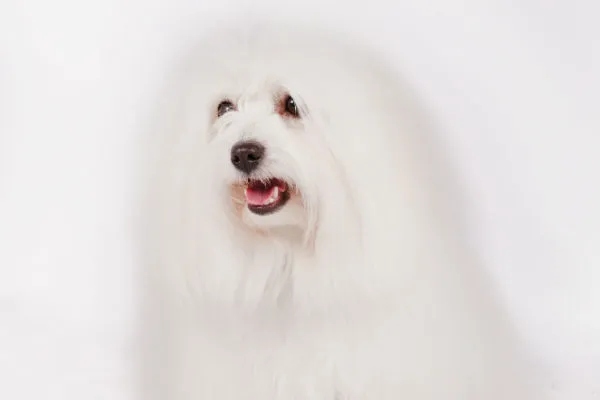 coton de tulearThe Coton de Tulear is recognized for its distinctive, long, fluffy coat, often considered hypoallergenic. This makes them an excellent choice for allergy sufferers and anyone seeking a small dog that doesn’t shed much. While they require daily grooming to maintain their coat, their lighthearted and gentle nature makes the effort entirely worthwhile. For those charmed by this breed, looking into Coton De Tulear puppies is a good next step.
coton de tulearThe Coton de Tulear is recognized for its distinctive, long, fluffy coat, often considered hypoallergenic. This makes them an excellent choice for allergy sufferers and anyone seeking a small dog that doesn’t shed much. While they require daily grooming to maintain their coat, their lighthearted and gentle nature makes the effort entirely worthwhile. For those charmed by this breed, looking into Coton De Tulear puppies is a good next step.
Havanese: The Cheerful Cuban Native
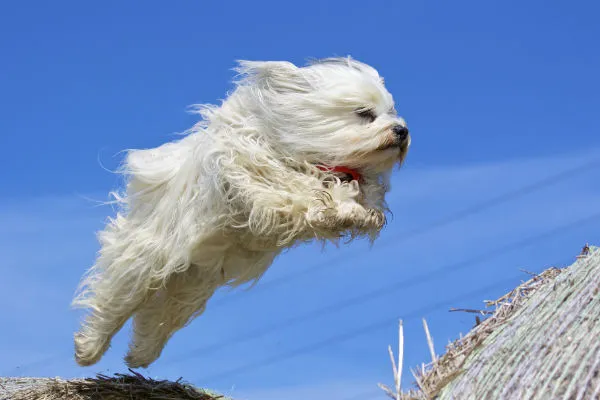 havaneseNative to Cuba, Havanese dogs offer owners their signature spunky charm and a non-shedding coat, meaning less time spent de-linting and more time playing with these cheerful companions. Their coat requires weekly brushing and regular baths to stay clean and healthy. If you’re envisioning a playful partner, consider looking for Havanese puppies.
havaneseNative to Cuba, Havanese dogs offer owners their signature spunky charm and a non-shedding coat, meaning less time spent de-linting and more time playing with these cheerful companions. Their coat requires weekly brushing and regular baths to stay clean and healthy. If you’re envisioning a playful partner, consider looking for Havanese puppies.
Maltese: The Ancient Aristocrat
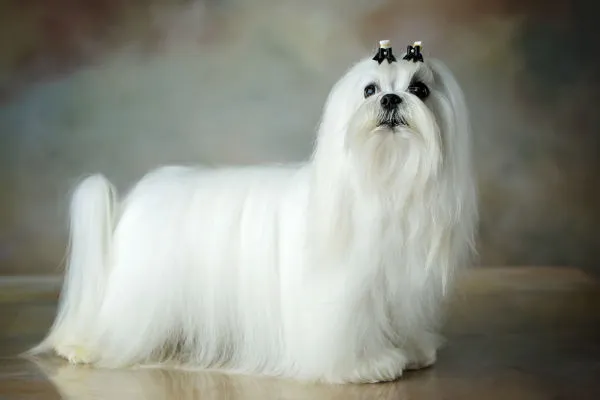 malteseFor over three millennia, the Maltese have captivated humans with their elegance. This ancient breed from Malta has maintained its charm, partly due to its long, white coat that sheds very little, making them perfect lap dogs. Regular brushing is essential to prevent matting, and occasional baths help keep their long, silky hair clean. Discovering Maltese puppies could be the beginning of a long companionship.
malteseFor over three millennia, the Maltese have captivated humans with their elegance. This ancient breed from Malta has maintained its charm, partly due to its long, white coat that sheds very little, making them perfect lap dogs. Regular brushing is essential to prevent matting, and occasional baths help keep their long, silky hair clean. Discovering Maltese puppies could be the beginning of a long companionship.
Lhasa Apso: The Tibetan Sentinel
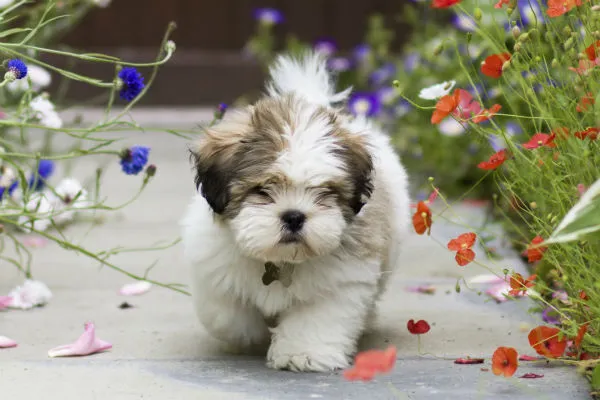 lhasa apsoOriginating from Tibet, the Lhasa Apso is an excellent companion dog. These dogs are calm yet playful, enjoying brisk walks and relaxing on their owner’s lap. Lhasa Apsos do not shed, but their coats require consistent maintenance. Many owners opt for a shorter “puppy cut” to simplify daily grooming routines. For those interested in this dignified breed, searching for Lhasa Apso puppies is recommended.
lhasa apsoOriginating from Tibet, the Lhasa Apso is an excellent companion dog. These dogs are calm yet playful, enjoying brisk walks and relaxing on their owner’s lap. Lhasa Apsos do not shed, but their coats require consistent maintenance. Many owners opt for a shorter “puppy cut” to simplify daily grooming routines. For those interested in this dignified breed, searching for Lhasa Apso puppies is recommended.
Miniature Schnauzer: The Spirited Terrier
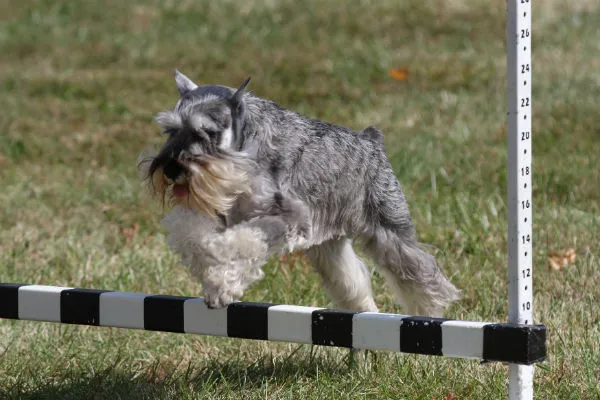 miniature schnauzerThe Miniature Schnauzer is an intelligent, trainable, and cheerful dog, closely resembling its Standard Schnauzer relatives. This Terrier sheds very little, and their adaptability allows them to thrive in both urban and rural environments, as long as they have their people nearby. Weekly brushing and regular professional grooming are key to keeping Miniature Schnauzers looking their best. Consider looking into Miniature Schnauzer puppies if this breed appeals to you.
miniature schnauzerThe Miniature Schnauzer is an intelligent, trainable, and cheerful dog, closely resembling its Standard Schnauzer relatives. This Terrier sheds very little, and their adaptability allows them to thrive in both urban and rural environments, as long as they have their people nearby. Weekly brushing and regular professional grooming are key to keeping Miniature Schnauzers looking their best. Consider looking into Miniature Schnauzer puppies if this breed appeals to you.
Poodle: The Intelligent Classic
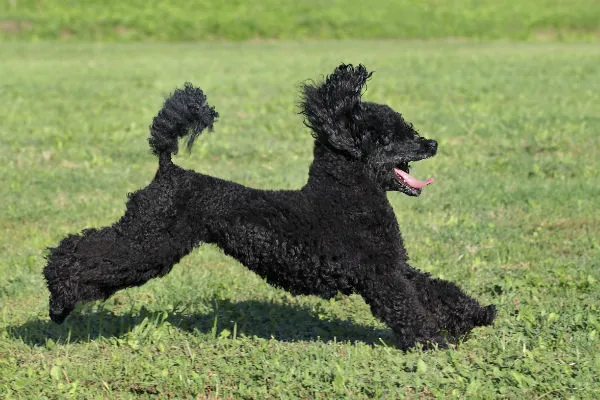 poodlePoodles are often the first breed that comes to mind when discussing small, non-shedding dogs, and for good reason. Poodles are both non-shedding and hypoallergenic. Miniature and Toy Poodles offer these desirable traits in smaller, intelligent packages, differing from their Standard counterparts only in size. All Poodles are highly intelligent, making them easy to train. They are active and proud dogs, but their distinctive curly hair requires regular professional grooming. If you’re looking for a smart and low-shedding companion, explore Poodle puppies.
poodlePoodles are often the first breed that comes to mind when discussing small, non-shedding dogs, and for good reason. Poodles are both non-shedding and hypoallergenic. Miniature and Toy Poodles offer these desirable traits in smaller, intelligent packages, differing from their Standard counterparts only in size. All Poodles are highly intelligent, making them easy to train. They are active and proud dogs, but their distinctive curly hair requires regular professional grooming. If you’re looking for a smart and low-shedding companion, explore Poodle puppies.
Scottish Terrier: The Bold Companion
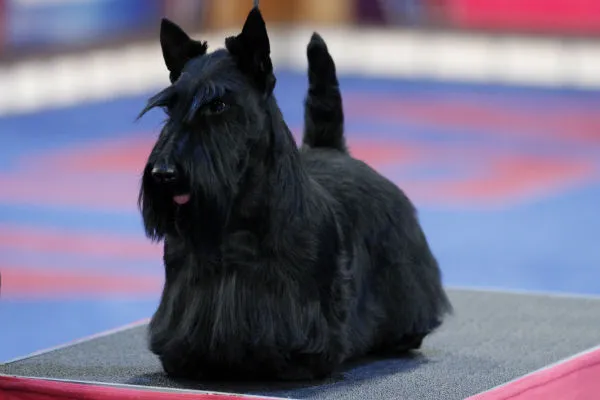 scottish terrierKnown affectionately as Scotties, Scottish Terriers are bold, confident, and possess big personalities. Their wiry, weather-resistant coat sheds very little, though they do require regular brushing, grooming, and occasional hand-stripping to maintain coat health and the breed’s characteristic outline. Scotties are clever and independent, with strong prey drives, so care should be taken around smaller animals. If this spirited breed appeals, consider looking for Scottish Terrier puppies.
scottish terrierKnown affectionately as Scotties, Scottish Terriers are bold, confident, and possess big personalities. Their wiry, weather-resistant coat sheds very little, though they do require regular brushing, grooming, and occasional hand-stripping to maintain coat health and the breed’s characteristic outline. Scotties are clever and independent, with strong prey drives, so care should be taken around smaller animals. If this spirited breed appeals, consider looking for Scottish Terrier puppies.
Shih Tzu: The “Little Lion Dog”
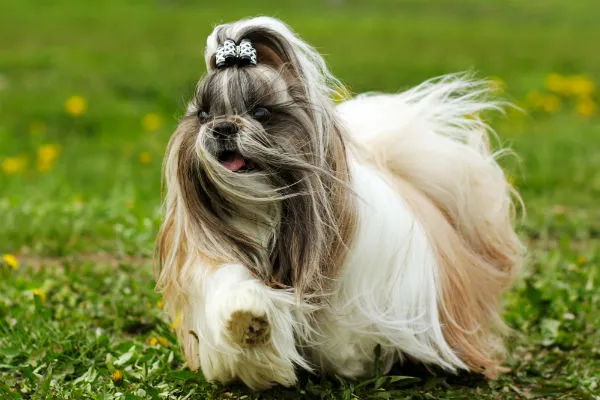 shitzhuThe Shih Tzu boasts a long and distinguished pedigree, once favored by royalty. These “little lion dogs” come in a variety of colors and patterns. Their long, silky hair is very low-shedding and looks exceptionally regal when brushed out, befitting their royal ancestry. This Toy breed is sturdy and lively, often carrying themselves with an air of proud carriage. Bred as house pets, their gentle and trusting nature makes them exceptional companions. Those interested can find Shih Tzu puppies.
shitzhuThe Shih Tzu boasts a long and distinguished pedigree, once favored by royalty. These “little lion dogs” come in a variety of colors and patterns. Their long, silky hair is very low-shedding and looks exceptionally regal when brushed out, befitting their royal ancestry. This Toy breed is sturdy and lively, often carrying themselves with an air of proud carriage. Bred as house pets, their gentle and trusting nature makes them exceptional companions. Those interested can find Shih Tzu puppies.
West Highland White Terrier: The Cheerful “Westie”
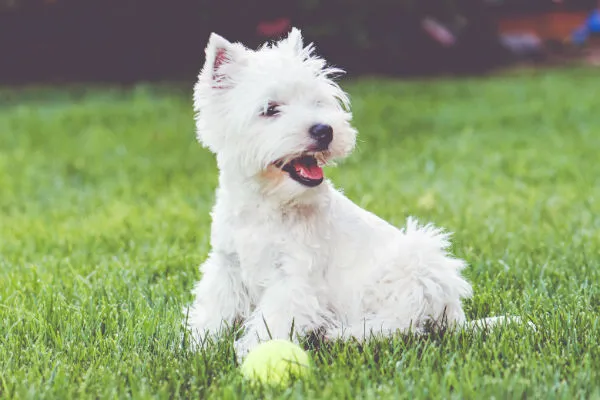 west highland terrierThe coarse, white hair of the West Highland White Terrier, affectionately known as Westies, sheds very little. These sturdy little dogs are intelligent, loyal, happy, and highly entertaining. They possess a curious nature and moderate energy levels, with an independent streak common to all Terriers, which can sometimes make training a challenge. If you’re looking for a cheerful and low-shedding companion, explore West Highland White Terrier puppies.
west highland terrierThe coarse, white hair of the West Highland White Terrier, affectionately known as Westies, sheds very little. These sturdy little dogs are intelligent, loyal, happy, and highly entertaining. They possess a curious nature and moderate energy levels, with an independent streak common to all Terriers, which can sometimes make training a challenge. If you’re looking for a cheerful and low-shedding companion, explore West Highland White Terrier puppies.
Xoloitzcuintli: The Ancient Mexican Hairless
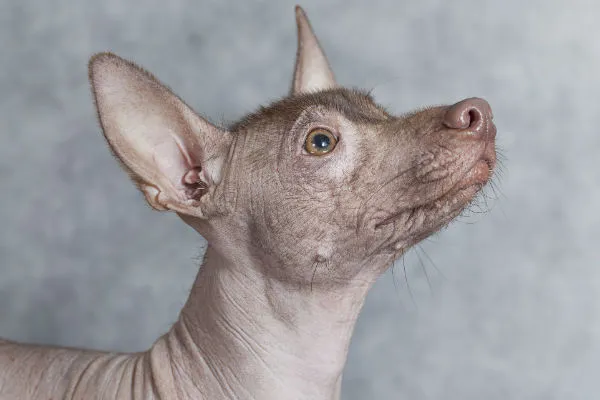 xoloAlso known as the Mexican Hairless, the Xoloitzcuintli is an ancient and rare breed that can be either hairless or coated. Hairless varieties have a small amount of hair on their heads, while the coated variety has a very short, fine coat that sheds minimally. Like other hairless breeds, Xolos require extra skin care to protect them from the elements. They make attentive watchdogs and affectionate companions, enjoying physical activity but known for their tranquil demeanor at home. Those interested in this unique breed can search for Xoloitzcuintli puppies.
xoloAlso known as the Mexican Hairless, the Xoloitzcuintli is an ancient and rare breed that can be either hairless or coated. Hairless varieties have a small amount of hair on their heads, while the coated variety has a very short, fine coat that sheds minimally. Like other hairless breeds, Xolos require extra skin care to protect them from the elements. They make attentive watchdogs and affectionate companions, enjoying physical activity but known for their tranquil demeanor at home. Those interested in this unique breed can search for Xoloitzcuintli puppies.
Yorkshire Terrier: The Spirited Toy Breed
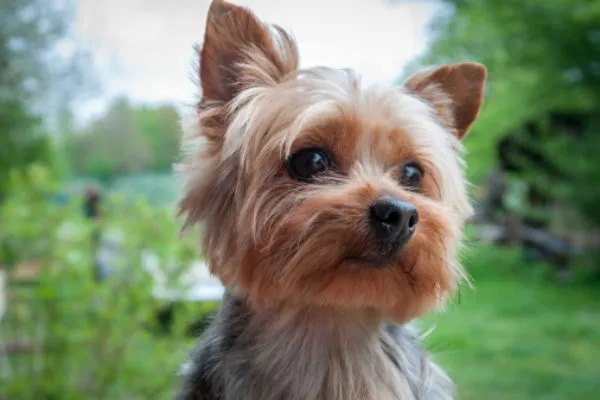 yorkieSprightly, tomboyish, and affectionate, the Yorkshire Terrier, or Yorkie, is a Toy breed brimming with personality. These spunky lap dogs are a popular choice for good reason: Yorkshire Terriers do not shed, and their silky coats are beautiful when brushed daily, a task made easy by their small size. Don’t let their regal appearance fool you; Yorkies have working-class roots and were once used to hunt rats. Today, they are just as happy to be a devoted lap companion as they are to explore. If you’re drawn to their spirited nature, consider looking for Yorkshire Terrier puppies.
yorkieSprightly, tomboyish, and affectionate, the Yorkshire Terrier, or Yorkie, is a Toy breed brimming with personality. These spunky lap dogs are a popular choice for good reason: Yorkshire Terriers do not shed, and their silky coats are beautiful when brushed daily, a task made easy by their small size. Don’t let their regal appearance fool you; Yorkies have working-class roots and were once used to hunt rats. Today, they are just as happy to be a devoted lap companion as they are to explore. If you’re drawn to their spirited nature, consider looking for Yorkshire Terrier puppies.
Beyond the List: Other Low-Shedding Options
The Terrier group is a treasure trove of small dogs that shed minimally or not at all. Wiry- and coarse-haired Terriers, in particular, tend to shed less than many other breeds, making them excellent choices for those who dislike excessive shedding. Beyond the breeds mentioned above, consider exploring other low-shedding Terrier breeds.
While finding a dog that doesn’t shed significantly reduces grooming demands, remember that no dog is entirely maintenance-free. Thoroughly researching non-shedding breeds is crucial to ensure a good match for your lifestyle and personality. To promote your pet’s well-being and prevent health issues, always acquire a dog from a reliable breeder, provide a high-quality diet, and schedule regular veterinary check-ups.
References
- American Kennel Club (AKC) Breed Information. (n.d.). Retrieved from https://www.akc.org/dog-breeds/
- AKC Marketplace. (n.d.). Retrieved from http://marketplace.akc.org/
